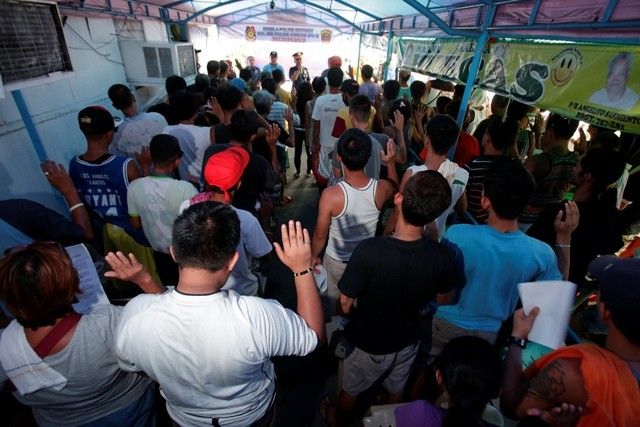Duterte forms task force to create, support drug rehab centers

MANILA, Philippines – In what could be another approach to deal with the drug problem in the country, President Duterte has formed a super task force to look into the treatment and rehabilitation of more than three million drug dependents all over the country.
Duterte has been criticized for the killings happening in the course of his war against drugs, as various sectors noted that cutting supply through police operations was not the only solution to the problem.
The drug menace is said to be a health concern as well, and treating people with addiction will reduce demand.
While the administration has emphasized that it was working on a holistic approach to end the menace and was not tolerating or sanctioning extrajudicial killings, the President’s rhetoric that he would kill all drug suspects in the country has become the highlight of his campaign against drugs.
Under Executive Order No. 4 signed by the President on Oct. 11, there must be one rehabilitation center built in every province from only 16 existing nationwide. There are 81 provinces in the Philippines.
Presidential spokesman Ernesto Abella said the President specifically asked that new facilities be built in key areas in the Visayas and Mindanao.
Based on the EO, Duterte also agreed to accept donations or any help from concerned groups or individuals who would wish to provide support for his anti-drug campaign.
According to authorities, more than 700,000 drug suspects have surrendered.
The EO mandated the creation of an inter-agency task force for the establishment and support of the Drug Abuse Treatment and Rehabilitation Centers (DATRCs) nationwide.
Among the functions of the DATRCs is to look out for suitable locations for rehabilitation centers, taking into consideration the need of the localities and the accessibility and manageability of facilities.
To help decongest existing rehabilitation centers, Duterte said the task force must establish DATRCs in available military reservations.
Earlier, Duterte showed off a 1,500-room dormitory for drug dependents now being built at Fort Magsaysay in Nueva Ecija.
Based on reports, the facility’s construction began in July and went full swing after Health Secretary Paulyn Jean Ubial signed a deed of donation with Chinese billionaire and philanthropist Huang Rulun in a meeting in Beijing, China.
Huang had reportedly met with Duterte and talked about how he could help deal with the illegal drug problem in the Philippines. Huang was said to have met with Duterte thrice, with two of the meetings happening during his presidential campaign.
If necessary, the EO stated the task force could enter into memoranda of agreement for the construction of rehabilitation centers in military facilities.
“Whenever necessary to facilitate the establishment of the DATRCs, including those in military reservations, the task force shall oversee the execution of appropriate MOAs between and among concerned agencies,” the EO read.
“These MOAs shall delineate the respective duties and obligations of such agencies in accordance with pertinent laws, rules and regulations,” it added.
Duterte issued the EO “in light of the government’s unrelenting campaign against illegal drugs, (wherein) the number of drug dependents who have voluntarily surrendered to the authorities continues to grow.”
In his previous speeches, Duterte said the high number of drug surrenderees made it hard for his cash-strapped government to handle rehab.
In the EO, the Palace said the increasing number of patients was straining the capacity of the 16 Department of Health-accredited facilities and their personnel.
It also cited the policy of the state to provide effective mechanisms or measures to reintegrate into society individuals who had fallen victim to drug abuse or dangerous drug dependence, through sustainable programs of treatment and rehabilitation.
Apart from the national government, the President also tasked local government units to tap their annual budgets to assist in or enhance the enforcement of the Dangerous Drugs Act of 2002 to prioritize the preventive or educational programs and the rehabilitation or treatment of drug dependents.
The Sangguniang Bayan, Sangguniang Panlungsod and the Sangguniang Panlalawigan are also mandated to pass ordinances providing for the care of drug dependents, subject to the availability of budget.
Under the EO, the creation of an inter-agency task force will be headed by the secretary of the Department of the Interior and Local Government for the establishment and support of the DATRCs nationwide.
The health secretary and the chairman of the Dangerous Drugs Board are designated vice-chairmen with the representative of the President, social welfare secretary, budget secretary, director general of the Philippine Drug Enforcement Agency (PDEA) as members.
- Latest
- Trending



























